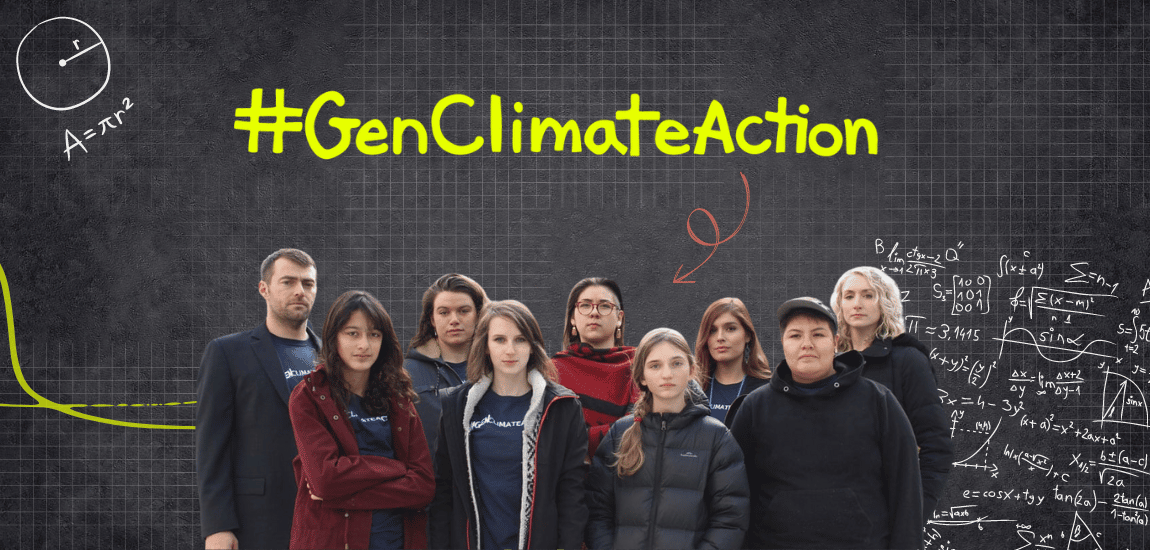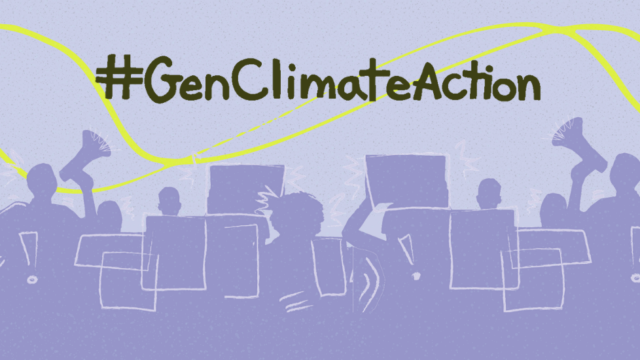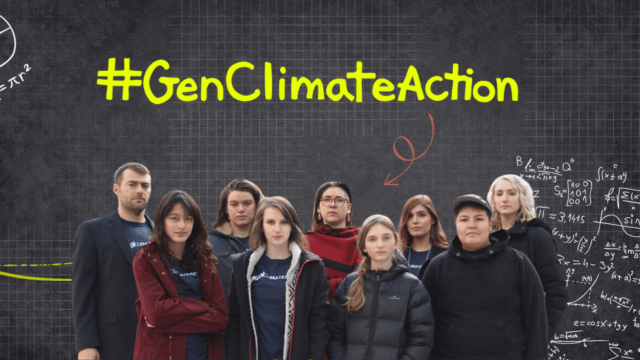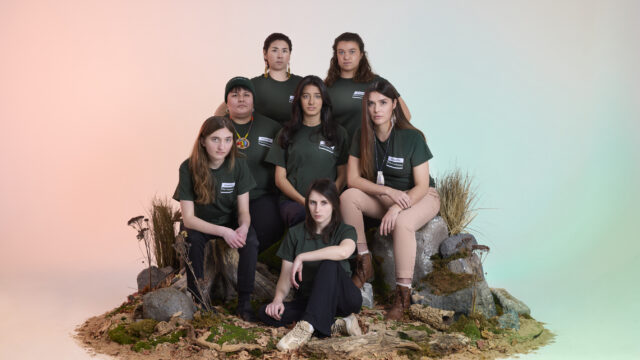Toronto, Ont./ Traditional territories of several First Nations including the Williams Treaties First Nations, Huron-Wendat, the Anishnaabeg, Haudenosaunee, Chippewas, and the Mississaugas of the Credit First Nation — Seven young Ontarians are heading to the Court of Appeal in January 2024 to ask the Court to reverse a lower court’s dismissal of their groundbreaking climate case. Their hearing is scheduled to be heard on January 15 and 16.
Sophia, Zoe, Shaelyn, Alex, Shelby, Madi, and Beze, are leading a legal challenge of the Ontario government’s decision in 2018 to significantly weaken the province’s 2030 climate target, enabling dangerous levels of greenhouse gas emissions over the next decade.
These young people will be asking the Court of Appeal to rule that Ontario’s conduct has violated the rights of youth and future generations to life, security, and equality under the Charter.
In particular, they will argue that in setting its new target, the province has not merely failed to act — it has taken clear steps that increase emissions and further endanger young Ontarians’ health and lives. This is unacceptable in the context of a climate emergency which demands global collective action.
The seven young people will also argue that Ontario’s target is clearly arbitrary because, as the lower court judge agreed, it falls severely short of what the scientific consensus says must be done to avert catastrophic climate change. Climate change is an existential threat, and the applicants say that Canadian courts must find a way to hold governments like Ontario accountable for harmful climate action.
This case continues in the context of an ever-worsening climate crisis. 2023 has seen record-breaking heatwaves, storms, and wildfires, and cities across North America have been blanketed with smoke. These seven young people are a beacon of hope in a world gripped with climate anxiety, and they are determined to make a difference.
Around the world, young people are leading the fight against the climate emergency. Last month, youth in Montana scored a landmark victory when a court ruling found that the state’s law prohibiting the consideration of climate impacts during project approvals violated the plaintiffs’ constitutional rights.
This September, young people across Canada, including the applicants in this case, will take to the streets as part of a global mobilization to demand a rapid, just, and equitable end to fossil fuels as world leaders attend the United Nations Secretary General’s Climate Ambition Summit.
Danielle Gallant, Ecojustice lawyer, said:
“These brave young applicants have put the impacts of climate change on youth and future generations to the forefront of national debate.
“While the Ontario Superior Court dismissed the application, the youth in this case are going to the Court of Appeal to keep fighting the pivotal battle to hold their government accountable for its climate action. The stakes are too high for us to give up now.
“At a time when communities are feeling the impacts of the climate crisis, youth climate litigation has been crucial to push for greater climate action around the world. These seven young Ontarians are determined to continue fighting for a livable future.”
Nader Hasan, partner, Stockwoods LLP, and lead counsel to the applicants, said:
“It is beyond dispute that climate change is an existential threat to Canada and the world. Scientists have known this for decades, and every politician knows it now (whether they admit it publicly or not). Still, nobody in power seems to want to do anything about it. Governments have had decades to address climate change but have failed miserably. So, these brave young climate activists are using the democratic tools available to them to force government’s hand. They are prepared to go the distance. The stakes are too high to stop now.”
Sophia Mathur, applicant, Sudbury, Ont., said:
“I’m involved in this case because we need to fight for young people, and for generations to come, to make sure we all have a safe and livable planet.
“Young people like me are taking action to demand governments take the climate crisis seriously.
“That is why I was the first student in Canada to start a climate strike, and it is the reason why I am continuing to fight for a better future through this case.”
Background:
- Mathur. et al is a case brought on the basis of rights protected under the Canadian Charter of Rights and Freedoms. These young people went to court to argue that when the government repealed relatively strong carbon pollution reduction targets and replaced them with one inadequate target for 2030, it violated Ontario youth and future generations’ constitutional rights to life, security of the person, and equality.
- In 2018, the provincial government set an extremely weak 2030 target: to reduce its emissions by 30 per cent below 2005 levels. The scientific consensus on emissions reductions needed to avoid climate disaster is a 45 per cent reduction below 2010 levels by 2030, which equates to a 52 per cent reduction of Ontario’s 2005 emission levels.
- The seven young applicants launched the case in 2019. Following attempts by the Ontario government to have it thrown out, they made history by being the first climate lawsuit based on Charter-protected rights to be heard on its merits in a Canadian court in September 2022.
About:
Ecojustice uses the power of the law to defend nature, combat climate change, and fight for a healthy environment. Its strategic, public interest lawsuits and advocacy lead to precedent-setting court decisions and law and policy that deliver lasting solutions to Canada’s most urgent environmental problems. As Canada’s largest environmental law charity, Ecojustice operates offices in Vancouver, Calgary, Toronto, Ottawa, and Halifax.
Nader Hasan and Justin Safayeni, of Stockwoods LLP, are veteran constitutional lawyers with a track record of holding government to account at every level court in Canada, including at the Supreme Court of Canada. In 2017, they led the successful legal challenge to seismic testing in the landmark Indigenous rights case, Clyde River v. Petroleum Geo Services Inc., 2017 SCC 40.





